UN Experts Condemn Young Protester's Execution In Iran
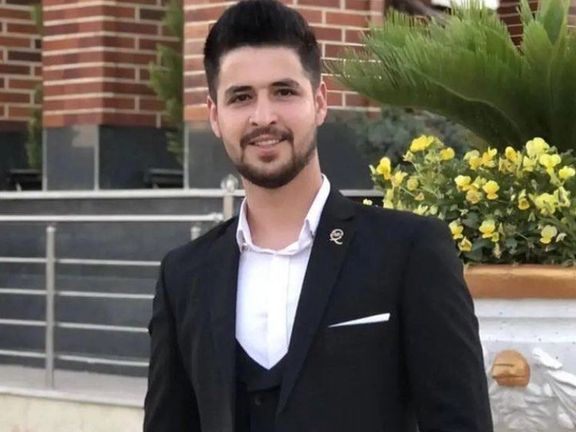
A panel of United Nations experts strongly criticized the execution of Mohammad Ghobadlou, a 23-year-old protester with a long-term psychosocial disability.

A panel of United Nations experts strongly criticized the execution of Mohammad Ghobadlou, a 23-year-old protester with a long-term psychosocial disability.
The experts including Javaid Rehman, Special Rapporteur on the situation of human rights in the Islamic Republic of Iran; and Morris Tidball-Binz, Special Rapporteur on extrajudicial, summary or arbitrary executions called on Iran to uphold its commitments under international human rights law.
“We are alarmed by reports of unfair trial proceedings in the case of Mr Ghobadlou, as well as in other cases, which fell far short of due process and fair trial standards required by international human rights law by which Iran is bound,” the UN experts said.
Ghobadlou, arrested on September 22, 2022, in connection with nationwide protests faced accusations of killing an Iranian official in Robat Karim, Tehran Province, and was sentenced to death on charges of "corruption on earth."
“We are shocked that the authorities went ahead with the execution despite the fact that Mr Ghobadlou and his lawyer had no information about the legal basis for the intended execution,” the experts said.
Additionally, they identified at least four individuals, including Mojahed (Abbas) Kourkour and Reza (Gholamreza) Rasaei, reportedly at imminent risk of execution, with at least 15 others facing the death penalty.
Concerned about the spike in executions, the experts disclosed that at least 834 people were executed in Iran in 2023, including 8 associated with the nationwide protests. They urgently called on the Iranian government to halt the ongoing wave of executions and reassess the use of the death penalty.
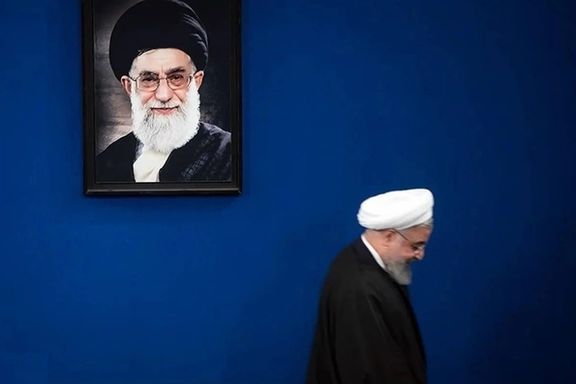
Reports from Tehran indicate that former President Hassan Rouhani has been barred from re-election at the Assembly of Experts election to be held on 1 March.
The news still awaited confirmation by the Interior Ministry when Rouhani's official account on X announced that he has been barred from running for the Assembly that is tasked with choosing the Islamic Republic's next Supreme Leader.
The interior ministry and the Guardian Council, both in charge of vetting candidates, have rejected hundreds of non-hardliners for the March vote, repeating the same tactic as was employed in the 2020 parliamentary and the 2021 presidential elections. As a result, the outgoing parliament is controlled by ultraconservatives, who also dominate President Ebrahim Raisi’s administration.
Meanwhile, moderate conservative websites such as Khabar Online, which speculated about options ahead of Rouhnai, and Nameh News, which splashed a headline saying, "The End of Rouhani," rather quickly published the first analyses about the implications of this development and Rouhani's choices and political future.
Now, Supreme Leader Ali Khamenei has effectively alienated all of Iran's former Presidents. Rouhani, the man who was believed to be one of the candidates for succession as Supreme Leader is the last one to be jettisoned out of what many see as Khamenei's sinking ship.
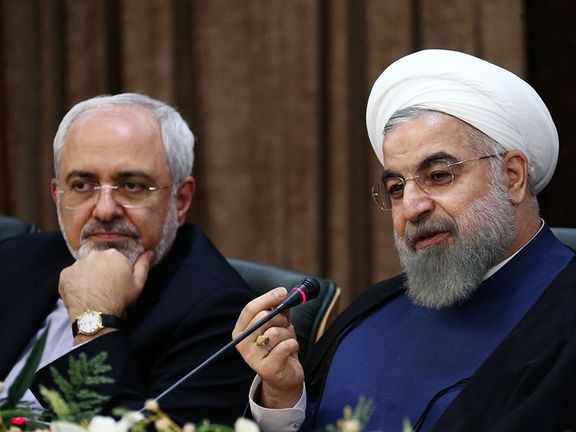
Having served as Iran's security chief for many years, as a member and deputy speaker of parliament and a member of the Assembly of Experts for several rounds, and as Iran's President for eight years, Rouhani’s disqualification sounds odd to anyone not familiar with the political and leadership dynamics in Iran.
Khamenei has not respected the loyalty of any of his obedient servants such as former Majles Speaker Ali Larijani, his close friends such as former President Akbar Hashemi Rafsanjani, and those he strongly endorsed such as former President Mahmoud Ahmadinejad. Although current President Ebrahim Raisi has never challenged Khamenei, no one can be certain what awaits him at the end.
Guardian Council Spokesman Tahan Nazifhas implied that Rouhani might have to stand trial at the Special Court for Clerics for his involvement in irregularities at the Iranian stock market. However, he said that Rouhani's final disqualification is awaiting the Interior Ministry's confirmation. Meanwhile, the Iranian Students News Agency ISNA, which was one of the first agencies to break the news of Rouhani's disqualification, called the news "a rumor" in a report published Wednesday afternoon.
Hardline politician Javad Karimi Ghoddousi, a staunch critic of Rouhani, resorted to a religious story and alluded to Rouhani's ambitions for rising to become the Islamic Republic's next Supreme Leader.
Iranian journalist Siamak Rahmani wrote that Mostafa Pourmohammadi, Rouhani's Justice Minister and the proprietor of Nameh News has been also disqualified by the Guardian Council. Meanwhile several social media users pointed out that the disqualification of Rouhani shows that the regime does not care about people's participation in the elections.
Another user wrote that it appears that everyone else other than Rouhani himself knew beforehand that he could be disqualified. One said that this was even evident from the start of the second round of Rouhani's presidency in 2017.
Talking about the next level in the Islamic Republic's power hierarchy, Maziar Khosravi, the editor of Faraz Daily website wrote in a tweet: "As the scene is set now, one must recognize Ebrahim Raisi as Iran's next Supreme Leader."
On Rouhani’s future plans, Khabar Online opined that if the disqualification is finalized, Rouhani might follow a course like Rafsanjani and become a kingmaker for the moderate camp: A position less than glamorous considering what happened to Rafsanjani, who was pushed out of the center of power and eventually died in suspicious circumstances in a swimming pool. Nameh News wrote in an analysis entitled "The End of Rouhani": "This is the final shot fired at Rouhani and the moderate camp."
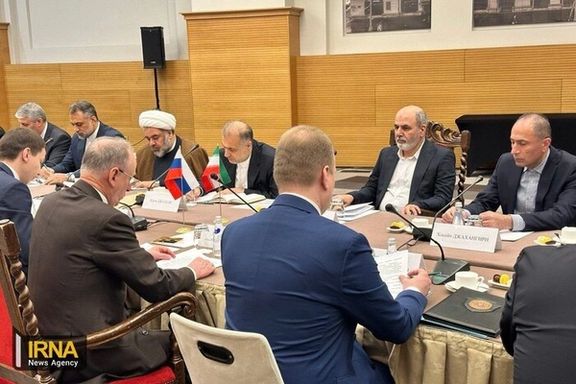
US grandeur has been shattered in the Middle East, secretary of Iran’s national security council, Ali-Akbar Ahmadian, stated during a visit to Moscow on Wednesday.
Ahmadian, who is the representative of Supreme Leader Ali Khamenei at the security council, held a meeting with the secretary of Russia’s security council Nikolai Patrushev. He told his Russian counterpart, "America's grandeur has shattered, and today, it cannot even rally its traditional allies. A country that considers itself a superpower is engaged in war against resistance groups and the people of the region."
Iran that armed and trained Hamas before the October 7 invasion of Israel, has avoided direct military conflict with Israel and the United States in the ensuing Gaza war. However, its armed proxy groups in the region have targeted US and international interests.
Yemen’s Houthis, one of Iran’s proxies, began targeting international commercial shipping in the Red Sea from mid-November, causing disruptions and forcing the US and the UK to launch airstrikes against their military bases.
Other Iranian allies in Iraq and Syria have launched more than 150 rocket and drone attacks at US forces in the two countries, to which the US military has responded with strikes.
IRNA reported that Ahmadian held talks over promised Russian investments in Iran’s oil and gas sector. Russia has signed many preliminary agreements with Iran about economic cooperation, but it has delivered very little.
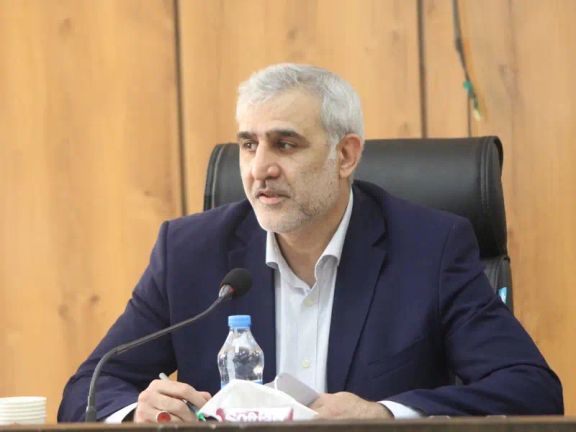
A member of Iran's National Security Commission claims that Israeli spy agency Mossad infiltrators played a role in the killing of five Quds Force members in Syria.
Morteza Mahmoudvand stated, "According to our information, the incident undoubtedly involved infiltration and intelligence operations," pointing to Mossad, the Israeli security service, as specialists in such activities, suggesting their likely involvement in the assassinations of the chiefs from the IRGC's foreign wing, the Quds Force.
“The Israeli security service known as Mossad specializes in that exactly – undoubtedly, it has been at the forefront of infiltration and intelligence work.”
Some Iranian critics of the regime have also mocked the IRGC for having been infiltrated by Israel.
Syria's state-run SANA news agency attributed the Saturday attack in Damascus to Israel. The Islamic Revolutionary Guard Corps (IRGC) confirmed the loss of four members in the airstrikes, with a fifth succumbing to injuries later. Subsequently, Iran-backed militant groups in Iraq launched rockets at Assad Air Base in Anbar province, where US forces are stationed.
In response to the killings, Iranian Parliamentary Speaker Mohamad Bagher Ghalibaf warned of "severe punishment" for Israel. Iran has consistently threatened Israel with severe consequences for its alleged role in the deaths of IRGC commanders and forces in the region though Tehran has refrained from direct attacks.
In December, Razi Mousavi, also known as Seyyed Razi, was killed in an Israeli airstrike near Damascus. He was responsible for overseeing logistics and military coordination for the Islamic Revolutionary Guard Corps (IRGC) in Syria. His role included acquiring weapons and coordinating activities for Iran-backed forces in both Syria and Lebanon.
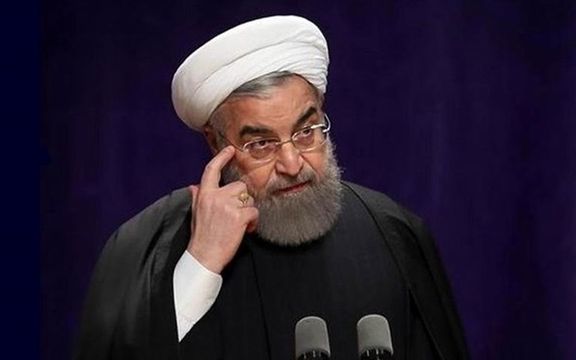
Iranian hardliners controlling the candidate vetting process for the March 1 elections, have rejected the candidacy of former President Hassan Rouhani, local media report.
Rouhani had registered and was eager to run for a seat on the Experts Assembly that will take place along with parliamentary elections in five weeks. The Assembly has the constitutional duty to select Iran’s next Supreme Leader after Ali Khamenei’s death.
Rouhani in November had stressed the importance of the election, considering political uncertainties in the event of Khamenei’s absence.
The interior ministry and the Guardian Council, both in charge of vetting candidates, have rejected hundreds of non-hardliners for the March vote, repeating the same tactic as was employed in the 2020 parliamentary and the 2021 presidential elections. As a result, the outgoing parliament is controlled by ultraconservatives, who also dominate President Ebrahim Raisi’s administration.
Rouhani's rejection by Khamenei loyalists has now pushed all former Iranian presidents into political isolation.
Those rejected are all regime insiders and not opponents, who could never be allowed to run in an election. Many are former high-ranking officials or lawmakers.
Relatively independent media outlets, commentators and many politicians agree that turnout in the elections will be extremely low, as voters have lost trust that any election in the Islamic Republic can improve their deteriorating economic condition or offer more freedoms. The widespread candidate rejections also diminish any chance that government efforts to entice the population to vote can bear any results.
The manipulation of elections take place even though hardliners know a low turnout can further erode the regime’s legitimacy, damaged by economic crisis and repeated nationwide protests.
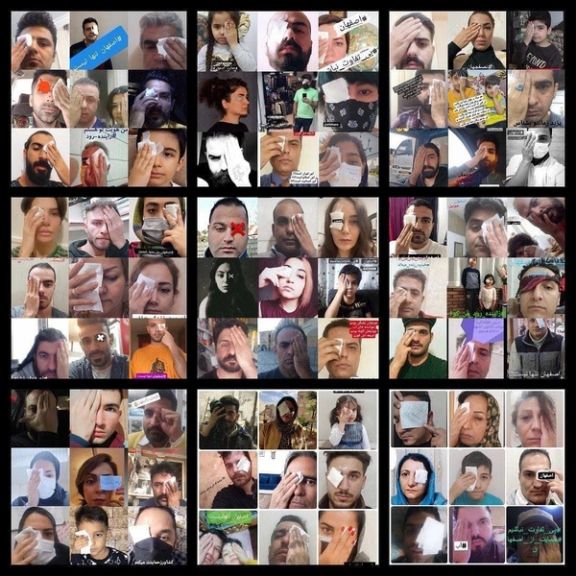
Two Iranian protesters who suffered eye injuries during the 2022-2023 protests have been arrested as the regime cracks down further on dissidents.
Amir Shahvelayati and Matin Hassani were apprehended on Tuesday in Tehran and Bukan, West Azarbaijan province, respectively.
Human rights organizations Hengaw and HRANA reported that Amir Shahvelayati was summoned to the Evin courthouse on Tuesday, detained, and subsequently transferred to Evin Prison. The charges against him include "propaganda against the system," "membership in a subversive group," and "actions against security."
Shahvelayati sustained eye damage from a pellet shot during the Woman Life Freedom protests. First arrested last May, he was released on bail after two months until the latest arrest.
Matin Hassani, another victim of eye injuries, was reportedly arrested in Bukan on the same day. Hassani lost vision in one eye due to a pellet gunshot during protests following the death in custody of Mahsa Amini.
Recent weeks saw him sharing images of his visits to the graves of protest victims. His arrest coincided with the publication of images showing him at the gravesite of Yalda Aghafazli, a victim of the Woman Life Freedom movement.
Despite the arrests, the judicial authorities of the Islamic Republic have not issued any official comments on the situation.
In September, the Iran Human Rights Organization (IHR) disclosed the identities of numerous individuals who suffered eye injuries when Iranian security forces fired at protesters. The IHR emphasized in its report that security forces targeted protesters' eyes, particularly women, in a "systematic and deliberate" manner with alarming precision.
The report documented 138 cases of eye injuries, with 43 individuals choosing anonymity while providing evidence. The remaining 95 cases, including 8 children under 18, were extensively detailed in the report.